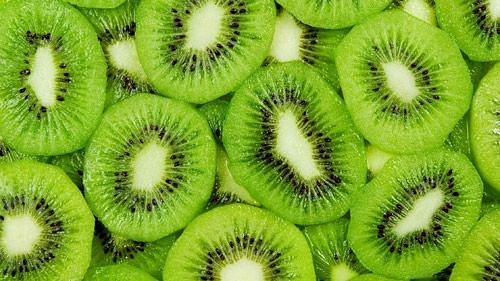Kiwi Fruit Benefits for Men
Kiwi has numerous health benefits. From boosting your immunity to improving digestions, find out Kiwi fruit's benefits here.

Before we talk in detail about kiwi fruit and kiwi benefits, did you know that the kiwi got its name due to its resemblance to New Zealand's national bird Kiwi? Kiwis were originally known as Chinese gooseberries as they originated in China. It is a low-calorie fruit as a 100 grams of kiwi fruit contains 61 calories. Further talking about kiwi nutrition, kiwi fruits are a very good source of Vitamin C and other important nutrients that contribute to the health benefits of kiwi.
Benefits of kiwi fruit
Kiwi advantages are majorly highlighted due to the high Vitamin C content but ideally, it is not just the vitamin C it's also the other nutrients especially the vitamins in kiwi which adds on to the advantages of kiwifruit. Let us now understand how does the use of kiwifruit benefit health.
1. Kiwi boosts immunity
Kiwifruit is one of the richest sources of Vitamin C. Vitamin C supports the immune system and also helps in the proper growth of tissues and helps in tissue repair when required. Vitamin C is a very powerful antioxidant that helps to protect the cells from damage caused by free radicals which can be a cause of cancer and inflammation. 100 grams of Kiwi provides the body with 93 mg of Vitamin C which is quite high.
Also Read: 8 Food Items to Boost Men's Immunity
2. Kiwi improves Cardiac health
Kiwi fruit has an antiplatelet effect. It happens to slow down the development of clots by having an aspirin-like effect on the body. It helps in reducing the fats in the blood and helps to reduce the clotting and manage the blood pressure levels. That’s how kiwi benefits heart health.
3. Kiwi improves Respiratory health
Asthma is one of the common respiratory issues affecting many. The vitamin C and antioxidants in kiwi fruit helps to manage asthma symptoms like coughing, shortness etc of breath, chest pain etc. Also, vitamin C helps to reduce inflammation, a very common issue in respiratory disorders by fortifying the capillary walls.
4. Kiwi improves digestion
In case of constipation and an unhealthy gut, allow kiwi to rescue you.
Kiwi fruit has actinidin which is an enzyme that helps to dissolve protein. Due to this kiwis are commonly used to tenderize meat. Kiwi also helps to digest protein in the human body and hence helps in quite some health issues. They also help in reducing the colon transit time, which increases the frequency to pass stools and helps to manage IBS.
Also Read: Ashwini Mudra for Digestion
5. Kiwi relieves Constipation
Kiwi is a good source of dietary fiber. Fiber by nature helps to control the development of metabolic disorders like obesity, diabetes, cholesterol, blood pressure. It also helps to relieve constipation due to its high fiber properties. Fiber decreases the chances of feeling constipated by providing a bulk to the stools.
Also Read: Yoga for Digestion
6. Kiwi for Eye health
Vitamin C due to its antioxidant properties helps to repair the damaged cells and helps in the generation of the new cells, hence helps to protect against cataracts. Kiwis contain the eye vitamins Lutein and zeaxanthin which protect the eyes from harmful UV light. They also help protect from macular degeneration which can lead to vision loss.
Read Also: Lockdown Is Causing More Headaches Than Ever
7. Kiwi improves skin health
Eating kiwi benefits skin due to kiwis Vitamin E and Vitamin C levels. Both of these prevent skin degradation due to their antioxidant property. It also helps you to manage the pH levels due to the alkaline nature which gives your skin a healthy glow and ensures that you look fresh and young.
Kiwi fruit uses have to be restricted if you have any known allergy towards it or if you face any problems like throat irritation, swollen tongue, vomiting, or trouble swallowing food after the kiwi intake.
Also Read: How Spirulina Benefits the Skin
Conclusion
Rather than wondering, is kiwi good for health? Start reaping the benefits of this exotic fruit by making it a part of your routine. Do not waste time thinking about how to eat kiwi fruit You can include it in different forms in the diet.
You can have it as a whole fruit or by adding it to smoothies, fruit salads, making it into popsicles, juice, etc. It can be a healthy snacking option as well as can be a healthy addition to your breakfast meal.

